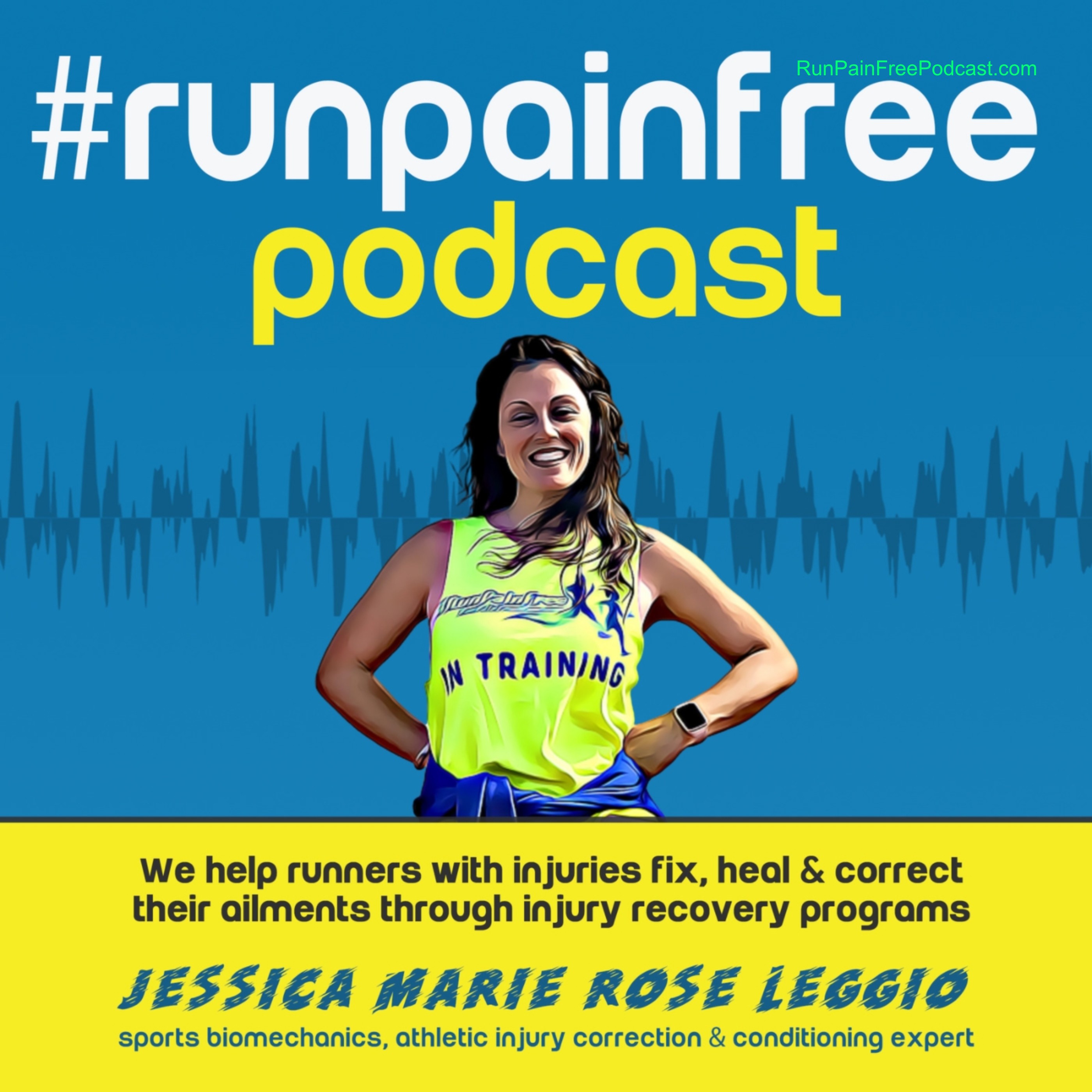Episodes

Monday Aug 03, 2020
Monday Aug 03, 2020
-=-=-=-=-=-=-=-=-=-=-=-=-=-=-=-=-=-
Show Notes
-=-=-=-=-=-=-=-=-=-=-=-=-=-=-=-=-=-
Episode: "What Olympian Deena Kastor Taught Me About The Mindset of Champion Marathoners"
Welcome to the #RunPainFree Podcast.
In this episode, Jessica Leggio, COACH, discussed her Marathon Training Summit interview with Olympian & World Record Holder Deena Kastor about mentality and attitude.
So if you want to find motivation during a virtual run, reach your highest potential as a runner, and continue to breathe into your edges as an athlete and runner so you can excel in your run journey and lifestyle, tune in now!
In this episode, you'll discover:
Episode Title: "What Olympian Deena Kastor Taught Me About The Mindset Of Champion Marathoners"
- Getting past disappointment in run goals and run journey
- How to Excel as a runner
- How to leverage life losses to run
- How to run without injury
- Controlling your emotions in life and running
About Deena
Olympian & World Record Holder Deena Kastor is an elite professional runner and expert in marathon training whose accomplishments include:
- Olympic Bronze Medalist
- Elite Professional Distance Runner
- World Record Holder
- Mother, wife, entrepreneur
Deena's Personal Best:
- Half-Marathon -1:07:34
- Marathon - 2:19:36 (AR)
More Information
Learn more about how you can improve your results with marathon training with marathontrainingsummit.com
Marathon Training Links & Mentions From This Episode:
Thanks for Tuning In!
Thanks so much for being with us this week. Have some feedback you'd like to share?
Please leave a note in the comments section below!
If you enjoyed this episode on mentality and attitude, please share it with your friends by sending them to RunPainFreePodcast.Com.
Don't forget to subscribe to the show on iTunes to get automatic episode updates for our "#RunPainFree Podcast!"
And, finally, please take a minute to leave us an honest review and rating on iTunes. They help us out when it comes to the ranking of the show, and I make it a point to read every single one of the reviews we get.
Please leave a review right now.
Thanks for listening!
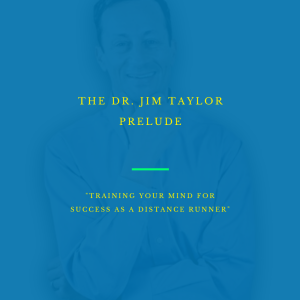
Sunday Aug 02, 2020
Sunday Aug 02, 2020
-=-=-=-=-=-=-=-=-=-=-=-=-=-=-=-=-=-
Show Notes
-=-=-=-=-=-=-=-=-=-=-=-=-=-=-=-=-=-
Episode: "Training Your Mind For Success As A Distance Runner"
Welcome to the #RunPainFree Podcast.
In this episode, Jessica Leggio, COACH preludes her Marathon Training Summit interview with Dr. Jim Taylor where they discuss creating a psychological advantage in your run program.
So if you want to Why you should avoid peak performance, using language to focus your mind on running, and How you identify with running so you can How to create psychological advantages over your competition or run peers, tune in now!
In this episode, you'll discover:
Episode Title: "Training Your Mind For Success As A Distance Runner"
- How are you talking to yourself as a runner
- What language are you using in your mind
- Why you should be present when training or competing
- How to create an advantageous identity as a runner
About Dr. Jim Taylor
Dr. Jim Taylor is an expert in marathon training whose accomplishments include:
- An authority on the psychology of sport and parenting
- A consultant for the United States Ski Teams, the United States Tennis Association, and USA Triathlon
- Lectured at the Olympic Committees of Spain, France, Poland, and the U.S.
- He has published more than 1000 articles in scholarly and popular publications
More Information
Learn more about how you can improve your results with marathon training at marathontrainingsummit.com
Marathon Training Links & Mentions From This Episode:
Thanks for Tuning In!
Thanks so much for being with us this week. Have some feedback you'd like to share? Please leave a note in the comments section below!
If you enjoyed this episode on creating a psychological advantage in your run program, please share www.RunPainFreePodcast.Com with your friends.
Don't forget to subscribe to the show on iTunes to get automatic episode updates for our "#RunPainFree Podcast!"
And, finally, please take a minute to leave us an honest review and rating on iTunes. They really help us out when it comes to the ranking of the show and I make it a point to read every single one of the reviews we get.
Please leave a review right now.
Thanks for listening!
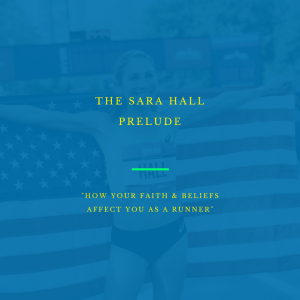
Saturday Aug 01, 2020
🎧 The Sara Hall Prelude to "How Your Faith & Beliefs Affect You As A Runner"
Saturday Aug 01, 2020
Saturday Aug 01, 2020
-=-=-=-=-=-=-=-=-=-=-=-=-=-=-=-=-=-
Show Notes
-=-=-=-=-=-=-=-=-=-=-=-=-=-=-=-=-=-
Episode: "How Your Faith & Beliefs Affect You As A Runner"
Welcome to the #RunPainFree Podcast.
In this episode, Sara Hall and I discuss How Your Faith & Beliefs Affect You As A Runner.
So if you want to run with more intention, control emotions and attitude on poor performances, and Clear the noise and distractions mentally and emotionally so you can how to know your "why" about the reasons you run, tune in now!
In this episode, you'll discover:
Episode Title: "How Your Faith & Beliefs Affect You As A Runner"
- How to make every run count
- How to evolve your run goals
- Discovering your "Why"
- Why You Need to Run With Intention
- Why you're an athlete even as a recreational runner
- Running for fun versus running with Intention
About Us
Sara Hall is an expert in marathon training whose accomplishments include:
- Professional Distance Runner
- 6x U.S. National Champion
- Wife, Mother, Philanthropist
More Information
Learn more about how you can improve your results with marathon training with marathontrainingsummit.com
Marathon Training Links & Mentions From This Episode:
Thanks for Tuning In!
Thanks so much for being with us this week. Have some feedback you'd like to share? Please leave a note in the comments section below!
If you enjoyed this episode on How Your Faith & Beliefs Affect You As A Runner, please share it with your friends by using the social media buttons you see at the bottom of the post.
Don't forget to subscribe to the show on iTunes to get automatic episode updates for our "#RunPainFree Podcast!"
And, finally, please take a minute to leave us an honest review and rating on iTunes. They really help us out when it comes to the ranking of the show and I make it a point to read every single one of the reviews we get.
Please leave a review right now.
Thanks for listening!
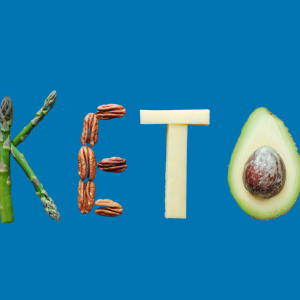
Friday Jul 10, 2020
Keto Explored Especially For Runners
Friday Jul 10, 2020
Friday Jul 10, 2020
The rise of Fad Diets has resulted in years of manipulation and making people believe that they will achieve their goals, become stronger or they will look a certain way if they follow such dangerous eating habits. #RunPainFreeAcademy believes in spreading information and knowledge for the people, and the athletes. Furthermore, the #RunPainFree program educates and gives knowledge on how to approach, operate, and function your body differently.
Today Sports, Bio-mechanic, Athletics, Corrective, and Conditioning Expert, Coach Jessica Marie Rose Leggio, talks about the dangers of the keto diet.
The Atkins Diet
Dr. Atkins is a famous doctor in the 70s and he believes in “High Fat to complete Extremes.” He is the creator of the Atkins Diet, which became the South Beach Diet, and now popularly known as Keto Diet. At that time, Dr. Ornish, a plant-based person, debated against Dr. Atkins for the dangerous effect of high fat in the body.
“This was a big issue back in the day. The reason I'm putting emphasis on this is that it is not brand new. This is not new. This is not some new findings. This is not a new medicine. This is not new nutrition. No, there’s nothing new about it. There's nothing brand new about it whatsoever. It is, however, known to be a moneymaker. The doctor himself was criticized for being somebody who just wanted to make money.” - Coach Jessica Marie Rose Leggio
Using Fat for Energy
The simple answer is, you don’t. The body needs glycogen which is found in a consistent diet with nutrient-dense, complex carbohydrates. Having no energy or glycogen makes your body break down your system since it’s creating something from nothing to produce glucose and have brain fuel.
“When you don't have the actual source of energy anymore, Glycogen, you have to start using other systems that are not efficient or appropriated for that. Your body tries to use it and gets over it quickly.” - Coach Jessica Marie Rose Leggio
Kidney Function
Since the body does not use high fat for energy, it starts to break down systems that cause dysfunction of your organs such as the kidney and heart. Furthermore, if this becomes a daily routine, it will condition the body on what to process or not. For example, if one stops the body from processing sugar, this condition will cause high blood sugar that leads to kidney function issues.
“When you're making your body use a system that is only to be happening in survival mode, your body goes into ketosis as a survival mode. It's when it starts to protect the nervous system, it starts to protect your organs. When you're challenging that, it'll challenge you right back and it'll do everything it can to not go into that survival mode unless it needs it. You're starting to mess with how your kidneys function. When your kidneys start to dysfunction, we talk about kidney stones, and ketones in your urine and these are all things you don't want.” - Coach Jessica Marie Rose Leggio
Other Side Effects
Keto diet can lead to health problems that are irreversible such as kidney issues, type two diabetes, heart problems, etc. Most people that go through this diet, especially gym rats and fitness buffs, immediately feel the shift in their body and realize that it’s not working for them. Not only is it not working, but it’s harmful and very dangerous.
“This is the most dangerous diet I have ever encountered, come across, studied, or dealt with ever. This is because it's dealing with processes, organ processes, that you have no business trying to mess with.” - Coach Jessica Marie Rose Leggio
Proper Diet and Information
Most people that go into Keto diet and other diet fads are enticed by looking a certain way or not knowing enough information about how it affects the body. Before going to extremes, people who are interested need to learn all the information and how it will affect the body.
“All of that information changes how you look at your options, and how you look at every option when it comes to food thereafter. I promise you that, and that's how I've approached my nutrition plan and my nutrition program for over 20 years with everybody I've ever done it with. I give you the information. Do with it what you want. I want food to work for you. Food’s job is to work for you.” - Coach Jessica Marie Rose Leggio
To learn more about Keto Diet and Coach Jessica of #RunPainFreeAcademy, download, and listen to this episode.
JOIN THE CONVERSATION
Our favorite part of recording a live podcast each week is participating in the great conversations that happen on our comments section. Feel free to drop your thoughts, questions, and suggestions!
FOLLOW OUR PODCAST
FOLLOW OUR HOST
- Instagram: @RunPainFree_Academy
- Instagram: @RunPainFree
- Facebook: @runpainfreenow
EXPLORE THESE RESOURCES
In this episode, we mentioned the following resources:
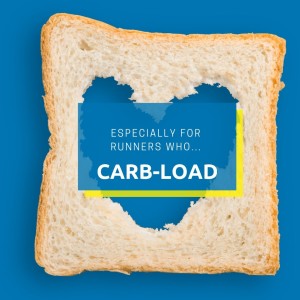
Thursday Jun 18, 2020
Especially for Runners Who Carb-Load or Crave Carbs
Thursday Jun 18, 2020
Thursday Jun 18, 2020
Carbohydrates
Are You Contemplating Carb-loading? Do You Crave Carbs? We are sure you’ve heard about it or may have done this in the past in preparation for a marathon. But how well do you know your carbs? To hear more about Coach Jessica and carbohydrates, listen to this episode.
#RunPainFree Academy sports biomechanics, athletic, corrective, and conditioning expert, Jessica Marie Rose Leggio gives us an insight into what carbohydrates is, what it does to your body, and which are the right types of carbs you should eat especially as a runner.
Ton of Misinformation
In this episode, Coach Jessica talks about a lot of misinformation about carbohydrates. In essence, carbohydrates are present in fruits, vegetables, and starch. Some WeightWatchers opt for an abundance of fruit, thinking it will have minimal effects on their weight.
“When you have an over portion of the fruit, it's all turned into sugar. The body will only take what it needs. Then it either gets rid of what it doesn't need or it stores it. If you don't have a good processing system, you're going to store it as sugar which becomes fat.” - Coach Jessica Marie Rose Leggio
Simple and Complex Sugars
Carbohydrates are 100% needed in our bodies. The issue lies between thinking that Twinkies and Captain Crunch and rice are equal to sweet potatoes, string beans, and strawberries because they're not. Simple sugars are broken down the minute they are ingested, unlike complex sugars.
Coach Jessica explains when we ingest food, insulin is released from the pancreas, which burns through simple sugars in seconds. Since you have a surge in insulin, without nothing else to burn, your body makes you crave more sugars.
The Downside of this Cycle
The whole cycle of crash-high-crash-high-crash happens all day long, it makes your internal organs tired, specifically your pancreas and kidneys. When you start to have a problem processing sugar, your blood sugar becomes unstable and you eventually borderline type two diabetes.
“Maybe one day I'll do the difference between a type one diabetic and a type two diabetic because they are totally different. Type two diabetics, you have complete control of fixing. You can literally fix this with eating and exercise. If you don't, you're going to be put on pills. If you don't do with the pills, you're going to need insulin, period. You're going to continue to grow but you absolutely have control over it.” - Coach Jessica Marie Rose Leggio
The Need For Complex Sugars
Coach Jessica stresses the importance of complex sugars in fruits and vegetables. Citrus fruits, such as oranges, pineapples, and grapes, have the highest content of sugar of all fruits. She advises that these fruits be taken early in the morning to allow your body to burn and use the energy throughout the day.
“Everything has a level with it. Here's the reason why everybody gets confused is that there are so many carbohydrates. If people get misled on what is or isn't a carb and overindulge and what they think isn't and it actually is, and that creates a problem.” - Coach Jessica Marie Rose Leggio
Carb-loading
Carbohydrates play an important role in your body because it is what delivers glycogen to your muscles, which is used for energy. Coach Jessica clarifies more misinformation about carb-loading for runners, such as it’s not supposed to only be done just a day before you run a marathon.
“I do not know where you think you are running with no carbohydrates. You will be gassed and tanked at mile 14 for a full marathon. You will be locked up with lactic acid with straight legs that can't move because your body was tapping into other processes because it ran out of ATP on its own. Ran out of the glycogen, has no more energy, which is carbohydrates. Guys, carbohydrates are your energy source. It is the energy fuel for your brain, not for nothing.” - Coach Jessica Marie Rose Leggio
Resources Mentioned:
#RunPainFree Nutritional Program
THIS WEEK'S QUESTION IS:
What misinformation about carbohydrates did you previously know of?
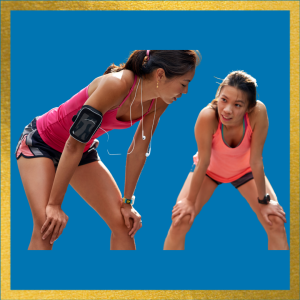
Thursday Jun 11, 2020
ATP: Why You Run Out of Energy as a Runner
Thursday Jun 11, 2020
Thursday Jun 11, 2020
In the previous episode about Intermittent Fasting, our resident sports biomechanics, athletic, corrective and conditioning expert, Jessica Marie Rose Leggio, touched on the importance of ATP or Adenosine Triphosphate.
In this episode, Coach Jessica dives into what ATP is, its importance to the human body, and why runners need to pay attention to it to achieve great results and better performance.
What is ATP
ATP or Adenosine Triphosphate is considered a molecular currency. Basically, it is the energy currency of the body. It enables the cells to have the energy to go back and forth. It is really important that we have ATP because it is what dictates our energy.
“In order for us to have this happen, there needs to be a neural stimulus. So the muscle has to get stimulated. To move neurologically, there has to be some kind of signal. Then there needs to be calcium in your muscles. So you have to have a storage of calcium in your muscles, and ATP must be available for energy also in your muscles. All those things have to happen. When you don't have any of those things, you can't produce ATP. We have ATP naturally on our own, but only a very little and there's a certain way to create it.” - Coach Jessica Marie Rose Leggio
Ways to Produce ATP
There are three different systems that produce ATP. The first system is ATP, which is a phosphagen system. Then there is the anaerobic part, which is from your lactate system. The third is the aerobic system, which is using basically using sugar to create energy.
“Anaerobic means no oxygen, aerobic means with oxygen. So anaerobic, think sprinter dancer, baseball player, people that do quick bursts of movement and then stop with nothing. That's anaerobic, even weightlifting is anaerobic.” - Coach Jessica Marie Rose Leggio
Aerobic respiration is the most used way of producing ATP. It is characterized when our bodies need both food and oxygen to create and produce ATP. When the body does that, the more oxygen we have, the more the ATP we can create.
Having a good blood flow
ATP is fueled when there is good blood flow. On a much deeper level, doing activities that encourages more blood flow signals the body that it needs to start creating more energy.
The more you are moving and creating blood flow, the more there oxygen is delivered to your body, thus more ATP is being produced.
“Foam rolling, pre-workout pre-run send signals to the body and to the muscles that, ‘hey, you're about to do some stuff. Get yourself together by just creating blood flow.’ So just creating blood flow, you're releasing tissue and all of these things to get your joints to work.” - Coach Jessica Marie Rose Leggio
Protein, Carbohydrates, and Fats
Coach Jessica discusses protein, carbohydrates, and fats and how they relate to ATP production. She also talks about why intermittent fasting is not a good idea for the body. She mentions this as well to her previous episode on intermittent fasting.
“When the body is looking for something to use, in order to create energy, it's going to go for the most efficient. Carbohydrates, not only is it the slowest, but it is also the fastest producing ATP. It actually stores the glycogen both in your muscle and your liver, waiting. So this doesn't happen with either of the other two [protein and fat]. Similarly fat is extremely slow, it's inefficient to use it which lends to why the body works so hard to it when it goes into fat reserves and is starting to use fat reserves, why so many systems start to shut down because it's starting to use fat for energy. Protein doesn't give you energy, protein recovers muscle, it's recovery.” - Coach Jessica Marie Rose Leggio
ATP and the Runners Body
You will hear what basically ATP is, in terms of transitioning, how it's created, how our bodies are process oxygen, and therefore, create more ATP. You will also learn that ATP does run out.
“If you run a marathon, you're depleted. This would then go into your lactic state because now you're anaerobic, so you're not fueling it with oxygen. So you start to get the lactic acid buildup. Back in the day, if you had lactic acid buildup, it meant you had really sore muscles the next day. But the real reason is that you went out of the system of ATP of using glycogen and you started to use the lactic acid.” - Coach Jessica Marie Rose Leggio
To hear more about Coach Jessica and ATP and the need for it as an athlete, listen to this episode.
FOLLOW OUR PODCAST
The #RunPainFree Podcast - www.runpainfreepodcast.com
THIS WEEK'S QUESTION IS:
What aerobic activities do you do to generate more ATP in your body?
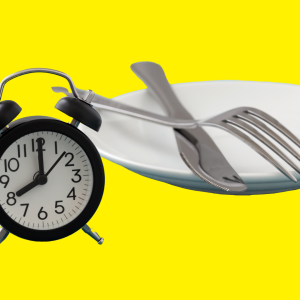
Thursday Jun 04, 2020
The Perils of Intermittent Fasting for Runners
Thursday Jun 04, 2020
Thursday Jun 04, 2020
#RunPainFree Academy’s athletic conditioning and corrective expert, Coach Jessica dives into another most-talked-about topic in the weight loss scene — intermittent fasting. Coming from a nutrition and expert background on fueling athletes, she talks about why intermittent fasting is such a bad idea.
To hear more from Coach Jessica about intermittent fasting, listen to this episode.
She gives information on how our body is built to differentiate “famine mode” from “feast mode” and why it matters. She also talks about what happens inside the body when you starve yourself and what are the serious implications to your kidney and liver.
Coach Jessica gives a detailed account of what you should know first before submitting yourself to this trending diet fad.
The Three-Hour Rule
If you are an avid follower of Coach Jessica or a member of the Academy, you might have heard her talk about how your body only gives you three hours, before it goes into starvation mode. The term starvation mode means your body starts to feast on muscles. Your body eats out muscles in order to function, not from fat because the body needs fat to live, and not muscles.
“Fat is there to make sure that you're surviving and you always have something as a reserve. I'm going to first talk about what starvation mode actually is. I am going to get as in-depth as I possibly can without being too scientific.” - Coach Jessica Marie Rose Leggio
Starvation Mode
Starvation mode technically is not a term. It's what is commonly used in the fitness industry or health industry as a famine response. Starvation mode is also known as famine mode, starvation, resistance, starvation, tolerance, adapted, starvation, adaptive thermogenesis, fat adaptation, or metabolic adaptation.
“Many, many moons ago — and there's tons of information about this — when there was feast or famine, there was a time when they do not know when they were going to eat again and they would hunt. They would get an eat as much food as possible. It created a storing system, where our bodies went into ‘survival mode’ and would store all of this food.” - Coach Jessica Marie Rose Leggio
Our Bodies Hoard Food
Our bodies were trained hundreds of years ago to “hoard” food because they did not know when they will be able to hunt and eat again. This hasn't changed that much because that is how our bodies operate.
“Food equates to activity. Food is energy for activity. That's why I always say, ‘look at the food, are you going to use it or not? If you're not going to use it, don't eat it.’” - Coach Jessica Marie Rose Leggio
Why IF Is Bad for Runners
Coach Jessica gave a blow by blow discussion on what happens to your body when you fast. Since you are not ingesting anything, your body goes to your muscles for glycogen.
When you lose muscle, you lose the ability to burn fat, because muscle is how you burn fat. There is a triple-negative to this as lastly when you finally decide to eat, your body is in survival mode.
“So all the ideas of carb loading and eating all these carbs while you're running and doing your long runs, the reason for that is so you can ‘store glycogen in your muscles’ because you need it to run for a long period of time.” - Coach Jessica Marie Rose Leggio
More Bad News
Coach Jessica has read a lot of medical journals and has experienced numerous trials for herself on weight loss, building muscles, and creating a body prime for athletic running. She professes how you can achieve this without resorting to intermittent fasting.
She further discusses bodily functions, specifically post-digestive functions, on what happens to your kidneys when you fast.
“There's a reason why we need to eat, what we need to eat, how we need to eat and why we get to go so long without it. Our bodies are amazing, but everybody has a breaking point and the body has a breaking point as well.” - Coach Jessica Marie Rose Leggio
FOLLOW OUR PODCAST
The #RunPainFree Podcast - www.runpainfreepodcast.com
THIS WEEK'S QUESTION IS:
Which part of the talk about intermittent fasting did you relate to the most?
EXPLORE MORE:
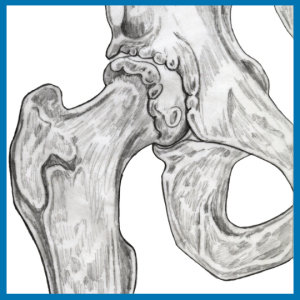
Thursday May 28, 2020
Secrets of a Healthy Hip
Thursday May 28, 2020
Thursday May 28, 2020
Secrets of a Healthy Hip
Thank you for listening to the #RunPainFree Podcast. If you really want to run without pain or discomfort, check this out https://www.RunPainFreeNow.com/Free-Training
Today Coach Jessica talks about the most important join in the human body, not only in terms of function but for long-distance running as well, the hip.
She shares about injuries connected to the hip and what are the possible ways of preventing them to ensure not only prime performance as an athlete but for longevity, too.
To hear more about Coach Jessica and the secrets of a healthy hip, listen to this episode.
EXPLORE THESE RESOURCES
In this episode, we mentioned the following resources:
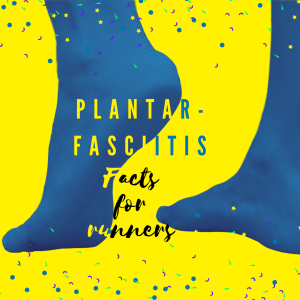
Saturday May 02, 2020
Plantar-Fasciitis Facts for Runners
Saturday May 02, 2020
Saturday May 02, 2020
The #RunPainFree Podcast
Episode: Plantar Fasciitis Facts For Runners
It is correctable. You do not have to deal with this for life.
In this episode, we discuss:
- What is Plantar Fasciitis?
- How do you get Plantar Fasciitis?
- The external factors that create plantar-fasciitis,
- The movement pattern of biomechanics that becomes restricted
- How external devices & gadgets (stability sneakers, tape, braces, shots) increase your risk of getting PF …
- Why do those devices never help them.
- How easy it is to solidify your injury with muscle mass.
- Why are orthotics bad for plantar fasciitis?
- How do stability sneakers can cause plantar fasciitis?
- How do you get rid of PF?
This weeks question is:
- What do you find is the most stubborn about your Plantar Fasciitis?
- What do you find agitates it the most?
Explore these Resources
In this episode, we mentioned the following resources:
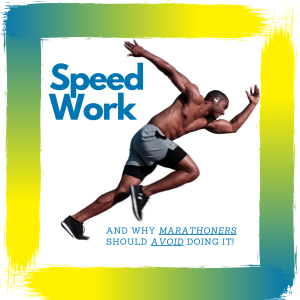
Tuesday Apr 21, 2020
Marathoners! Why Speed Work Leads to Injury...
Tuesday Apr 21, 2020
Tuesday Apr 21, 2020
The #RunPainFree Podcast
Episode: Marathoners! Why Speed Work Leads to Injury...
Title. ...And other NO NO’s for long-distance runners
In this episode, we discuss:
- What is speed work?
- Why is it used?
- What is sports-specific training? And how does it apply to long-distance running
- What is the difference between Track & Field and Long Distance Running?
- What does the science of Speed Work break down in terms of athletic conditioning?
- How does Speed Work translate to a long-distance runner, muscularly?
- How does Speed Work create injuries in long-distance runners
Explore these Resources
In this episode, we mentioned the following resources:
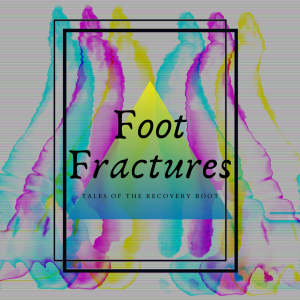
Wednesday Apr 08, 2020
Foot Fractures & The Boot for Runners
Wednesday Apr 08, 2020
Wednesday Apr 08, 2020
The #RunPainFree Podcast
Episode: The Boot
Title: Foot Fractures & The Boot
Subtitle: Tales of the Recovery Boot
Before I move on, if you want to know "How To Run Pain Free and Recover From A Run Injury Without Having To Stop Running (Even If You Have No Clue Where To Start!)" this Free Webinar, Presented By Jessica Marie Rose Leggio, makes it quick and easy! You can check it out here: https://www.RunPainFreeNow.com/Free-Training
In this episode, we discuss:
- What is a boot for, particularly the lower leg boot?
- Why a runner would be told to use it
- What injuries are more likely to require getting put into a boot.
There are certain injuries that are automatic for boot use. (ie. Achilles sever)
- What happens to your body, when you are in a boot specifically your gate, back, hips and other injuries
- Why wouldn't you wear a boot, and why a boot can make matters worse.
- Injuries that are not wearing a boot may be ideal. (ie. ankle sprains, neuromas)
- Injuries or imbalances are created by wearing a boot.
- What are they and how they come to be?
- What this report all means for a runner long term.
Explore these Resources
In this episode, we mentioned the following resources:
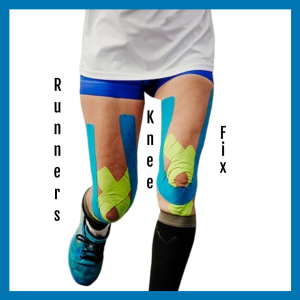
Thursday Apr 02, 2020
The Runner‘s Knee Fix Is In
Thursday Apr 02, 2020
Thursday Apr 02, 2020
The #RunPainFree Podcast
Podcast Show Notes
Date: 3/16/2020
Episode: 16
Title: The Runner's Knee Fix Is In
Subtitle: There is no such thing!
In this episode, we discuss:
- What does it mean when a doctor says you have runners knee? Decoded
- The IT Band Pattern and movement pattern, and its cause and effect on your body’s mechanics
- What is actually happening in your body when “runners knee” is what you are told you have
- Correction for this pain you have is 100% applicable
- What to foam roll, and how foam rolling or lack thereof affects this
- What to expect if you do not correct it
Explore these Resources
In this episode, we mentioned the following resources:
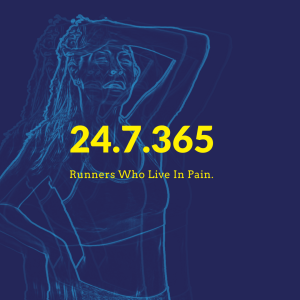
Thursday Mar 19, 2020
Runners Who Live In Pain
Thursday Mar 19, 2020
Thursday Mar 19, 2020
The #RunPainFree Podcast
Podcast Show Notes
Date: 3/16/2020
Episode: Runners Who Live In Pain
Subtitle: What to do if you live in pain
In this episode of The #RunPainFree Podcast, we discuss:
- Who are we talking about, that lives in pain every day - is it you?
- What does it mean to live in pain every day? What does a person deal with on a daily basis? The constant internal compromise and trade-offs you have to do all day just to get through the day
- Tradeoffs of regular daily things your peers don't understand, so you hide it to not be judged.
- Being judged by your peers, how to mitigate that AND how to STOP judging your peers.
- The emotional aspect and effect on living in pain all day every day, the long term effects physically, emotionally and mentally
- Honesty, with yourself and with others
- How to combat the emotional aspect of living in pain is feeling better, not just thinking your way to it… but actively doing something to feel encouraged to continue
- Why feeling pain is how you will understand pain, learn your pain and get out the pain. And how nothing else will do this for you.
- You are your biggest factor in getting better or not
- There is light at the end of the tunnel, it's a road to take, but there is a light at the end of the tunnel.
- How this will change your life for the better
- Changing negatives into positives.
Join the Conversation
Our favorite part of recording a live podcast each week is participating in the great conversations that happen on our live chat, on social media, and in our comments section.
This weeks question is:
Question: Are you living in pain? Comment below with your story or run experience...
Explore these Resources
In this episode, we mentioned the following resources:
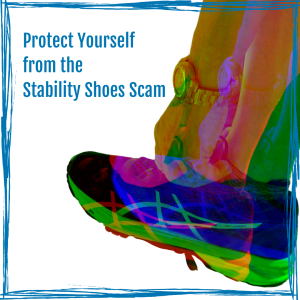
Tuesday Mar 10, 2020
Protect Yourself From The Stability Shoes Scam
Tuesday Mar 10, 2020
Tuesday Mar 10, 2020
The #RunPainFree Podcast
Episode: Stability Shoes/Sneakers
Title: Protect Yourself From The Stability Shoes Scam
Subtitle: Here's The Perfect Solution If You Were Thinking of Buying Stability Shoes or Want to Get Over An Injury (even if You've Been Told You Need Stability Shoes Cause Your Feet Pronate)
In this episode, we discuss:
- The fact that it is ignored that its called SHOES and not “sneakers”
- The injury cycle of stability sneakers
- The movement of stability sneakers
- How stability sneakers have created false beliefs in the running community that creates injuries
Explore these Resources
In this episode, we mentioned the following resources:
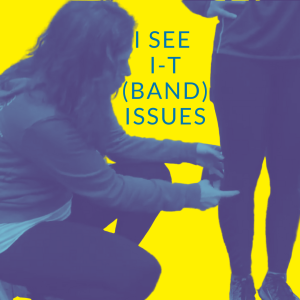
Wednesday Mar 04, 2020
The Insiders Guide to IT-Band Syndrome
Wednesday Mar 04, 2020
Wednesday Mar 04, 2020
The #RunPainFree Podcast
Podcast Show Notes
Episode: IT-Band Syndrome
Title: The Insider's Guide to IT-Band Syndrome
Subtitle: The root of all injuries
Final Show Link:
In this episode of The #RunPainFree Podcast, we discuss:
- What is the IT-Band?
- What does ITB Syndrome mean?
- Syndrome stands for “I have no idea how to fix you…and refuse to refer to someone who can”...
- How it's the root of all biomechanics dysfunction or function.
- Why it keeps happening - why is the knee the most related to it ITBS
- How to get rid of it!
Join the Conversation
Our favorite part of recording a live podcast each week is participating in the great conversations that happen on our live chat, on social media, and in our comments section.
This weeks question is:
Question: Do you suffer from IT-Band syndrome or runner's knee? What are you currently doing to correct it?
Explore these Resources
In this episode, we mentioned the following resources:
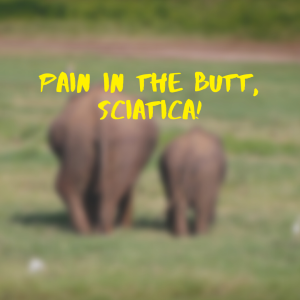
Tuesday Feb 25, 2020
Pain in the Butt, Sciatica!
Tuesday Feb 25, 2020
Tuesday Feb 25, 2020
The #RunPainFree Podcast
Episode: Sciatica - Pain in the Butt
In this episode of The #RunPainFree Podcast,
In this episode, we discuss:
- What it means to have classic sciatica versus various forms of sciatica
- Why you feel sciatica in your lower body from hips to your toes
- How you get it - sacrum issue “SI JOINT”
- How Hip dysfunction contributes to sciatica
- Why you continue to get sciatica pain
- How to get rid of sciatica
Explore these Resources
In this episode, we mentioned the following resources:
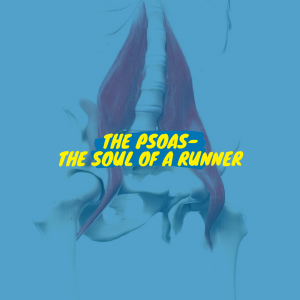
Tuesday Feb 18, 2020
The Psoas Muscle: ”The Soul of a Runner”
Tuesday Feb 18, 2020
Tuesday Feb 18, 2020
The #RunPainFree Podcast
Podcast Show Notes
Episode: #13
Title: The Psoas Muscle
Subtitle: The Soul of a Runner’s Body
If you are a new listener to #RunPainFree Podcast, we would love to hear from you. Please email us and let us know how we can help you today!
In this episode, we discuss:
- The use of the psoas
- What movements the psoas is responsible for...
- Back pain while running
- Hip flexor pain
- Hamstring strains
- Speed and Pick up
In this episode, we mentioned the following resources:
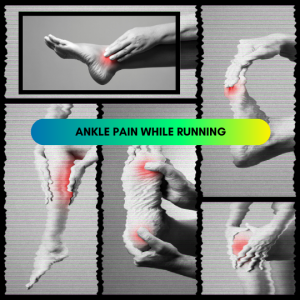
Monday Feb 10, 2020
Ankle Pain While Running
Monday Feb 10, 2020
Monday Feb 10, 2020
The #RunPainFree Podcast
Podcast Show Notes
Date: 1/20/2020
Episode: 12
Title: Ankle Pain While Running
Subtitle: Why it happens and how to address it.
If you are a new listener to [Podcast], we would love to hear from you. Please visit our admin@runpainfreenow.com and let us know how we can help you today!
In this episode, we discuss:
- How to address ankle pain when you’re running, post-run, or in general and how to address it.
- What does it mean if your ankle hurts when you run?
- What causes ankle pain while running?
- How do you stop ankles from hurting when you run?
- Is running bad for your ankles?
- How do you get rid of ankle pain?
Join the Conversation
Our favorite part of recording a live podcast each week is participating in the great conversations that happen on our live chat, on social media, and in our comments section.
This weeks question is:
Question: Do You Have Ankle Pain While Running or Immediately After?
Explore these Resources
In this episode, we mentioned the following resources:
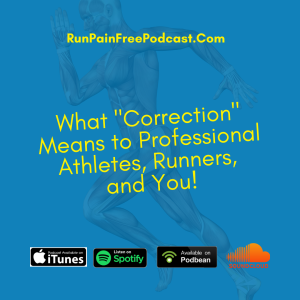
Wednesday Feb 05, 2020
What ”Correction” Means to Professional Athletes, Runners, and You!
Wednesday Feb 05, 2020
Wednesday Feb 05, 2020
The #RunPainFree Podcast
Podcast Show Notes
Episode: 11
Title: What "Correction" Means to Professional Athletes, Runners, and You!
Subtitle: - What is “correction” and why do all professional athletes and runners utilize biomechanics experts.
In this episode, we discuss:
- Correction - what actually is it and why do all professional athletes and runners utilize biomechanics experts.
- #RunPainFree Academy Launch
- Running Injuries Master Class.
- It centers on the theory behind injuries…
- And a practical step-by-step guide on how to address (identify) injuries and correct or prevent them.
Explore these Resources
In this episode, we mentioned the following resources:
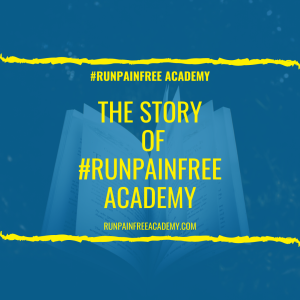
Tuesday Jan 28, 2020
The Story of #RunPainFree Academy
Tuesday Jan 28, 2020
Tuesday Jan 28, 2020
The story of the #RunPainFree Academy
Podcast Show Notes
Date: Jan 26, 2020
Episode:
Title: The story of the #RunPainFree Academy
In this episode of The story of the #RunPainFree Academy, …
If you are a new listener to The #RunPainFree Podcast, we would love to hear from you. Please email admin@runpainfreenow.com and let us know how we can help you today!
In this episode, we discuss:
- The Origin Story of #RunPainFree Academy… where did the academy come from?
- We work with people one on one in NYC...But what about people all around the world?
- For over a decade we’ve worked with select people internationally.
- The academy launches Feb 1, 2019
- What courses are in the #RunPainFree Academy (foam rolling secrets, Master Classes: Plantar Fasciitis, Top 10 most common running injuries)
- Look out for an upcoming webinar on the #RunPainFree Academy
- Totally new to #runpainfree? The best way to indoctrinate yourself is to Sign up on RunPainFreeAcademy.Com for our starter kit and to be notified when our newest webinar is released.
Explore these Resources
In this episode, we mentioned the following resources:
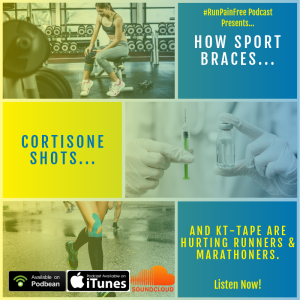
Friday Jul 19, 2019
How Sport Braces, Cortisone Shots & KT-Tape HURT Runners & Marathoners!
Friday Jul 19, 2019
Friday Jul 19, 2019
In this episode of the #RunPainFree Podcast,
In this episode, we discuss:
- Braces - The human body is meant to move freely. Learn how braces lock up your joints preventing you from moving freely. Runners wear braces to alleviate pain, but braces do not protect a runner from injury. In fact, it leads to more serious problems.
- Shots - Cortisone can cause joint and cartilage damage when it is used for prolonged periods. It can also lead to tendon rupture as it weakens the body to dissipate pain. Discover how the pain is simply a result of the real problem, and why shooting the pain spot with cortisone actually deconditions your muscles, and creates new injuries.
- KT Tape - Has had a class-action lawsuit against them for false claims of preventing or fixing injuries, and the federal government WON, for a reason. We discuss the myth and misconceptions of KT-Tape and why your favorite athletes wear it, and why you should probably NOT use KT-Tape as a runner.
By the way, if you really want to run without pain or discomfort, check this out https://www.RunPainFreeNow.com/Free-Training
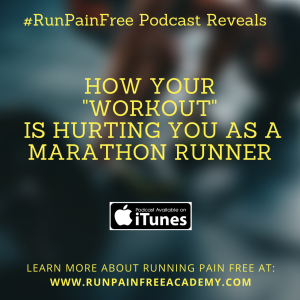
Saturday Jun 29, 2019
How Your ”Workout” Is Hurting You As A Marathon Runner
Saturday Jun 29, 2019
Saturday Jun 29, 2019
How does working out hurt a runner?
As soon as a runner feels pain the first thing they do is run to do strength training. And it’s the WORST thing any athlete or anyone in pain can do. You build that dysfunction you are operating on. Worse. You MUST address the movement pattern to stop the pain, or you build it stronger.
Most trainers do not have injury education, it's not what they are there for so they don't have to know. BUT it's important that we all know our limits in the health profession. Many trainers send my clients to get them “fixed” and then back into training. That is a trainer that understands the difference. And the EGO is out of it.
Muscles/workouts are EASY, #RunPainFree addresses the JOINT level, which dictates muscle.
Loading a pattern solidifies that mechanic, and therefore the injury is stronger.
When you bypass the joint and go after the muscle, you create more injuries.
EGO has no place when it comes to injuries and people's bodies. Sadly, TOO many in this health industry have egos bigger than they admit. And This habit tends to hurt people.
- Foam roll first no matter what you feel! It will release the strain (go listen to my IT BAND podcast)
- Backtrack when you first felt the pain
- Can you map the chain reaction to your pain
- Create the movement that hurts most
Want more? If you really want to run without pain or discomfort, this Free Webinar lays it all out for you! Check it out here https://www.RunPainFreeNow.com/Free-Training
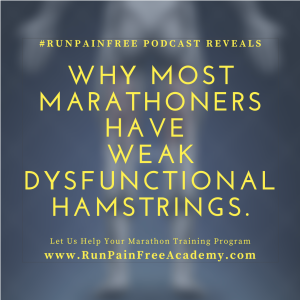
Saturday Jun 29, 2019
Why Most Runners Hamstrings Are in Dysfunction
Saturday Jun 29, 2019
Saturday Jun 29, 2019
Why Most Runners Have Weak Dysfunctional Hamstrings
Are your hamstrings doing the job of the glutes?
Like many things, I have come to find out the ROOT of the cause for many runners hamstring injuries.
The reason is, runners never build their glutes; they are trained to lift with the quad and keep the hamstring long.
An example of this is why when you squat, and your foot turns out, is a sign your hip is off and not supported by mass, indicating bad form if your feet/foot turns out! Joint range compared to stability (muscle mass) has to be balanced, or you're at high risk for injury. This action is why a dancer's body is as dysfunctional mechanically as a human. A complete opposite example of this is a football player, a lot more mass compared to flexibility/range = high risk for injury.
Runners are taught to PUMP (build) the hamstring, and build quads, even though the running community agrees the glutes are the most important, the lack of education here results in pushing the hammies to overfire disallows the glutes to fire, which then leads to the hamstrings not doing their job and taking on the responsibility of the glutes.
Explore More:
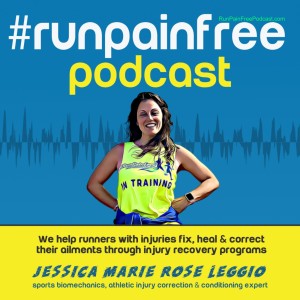
Friday Jun 28, 2019
Why The Treadmill is a Dreadmill For Marathon Runners
Friday Jun 28, 2019
Friday Jun 28, 2019
Why running on a treadmill is hurting your body more than you know…
Treadmills have a high rate of hamstrings injuries. Due to the shortening of the stride that the body does naturally due to the proprioceptors (the awareness of your surroundings and how much space you have) firing. Because you are on a belt, the legs naturally feel that and adjust, making your stride shorter. A shorter stride can mean:
1- Toe Striking
2- Lack of Hamstring Extension
3- No Glute Function
4- Quad Running
5- Overuse of Hamstring in a Dysfunctional Manner for Running
6- Hip Lock Up
7- Back Pain
All of which results in hamstring injuries. Especially in Asics sneakers (based on 2 years of hamstring strain case studies findings revealing the majority of hamstring strains are women, on the treadmill and those in Asics.).
Women strain the insertion up under the glute. Where Men straining at the middle of the hammy
Furthermore, holding on while running is a recipe for a very serious hip injury, most commonly resulting in Torn Hip Labrums.
Yes in the cold, the treadmill is a go-to, and this podcast addresses how to do it safely, keeping your stride open while using the right muscles (glutes) and extending the hamstrings.
Explore More:
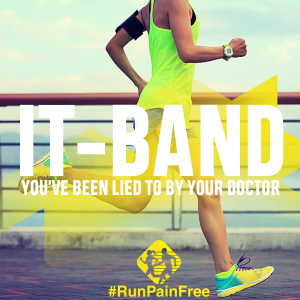
Tuesday Apr 03, 2018
The IT-Band: You Have Been Lied To
Tuesday Apr 03, 2018
Tuesday Apr 03, 2018
In this episode of the #RunPainFree Injury Recovery Show, you will discover why you've been lied to about your IT-band.
Jessica Marie Rose Leggio from RunPainFreeNow.com breaks down how you have been led astray due to clever marketing.
- The full root of the IT band
- Its job is to restrict.
- It dictates the entire mobility of a run.
- restriction vs tightness
- Range of motion vs stretching
- Why foam rolling is imperative
https://www.RunPainFreeNow.Com/Free-Training

